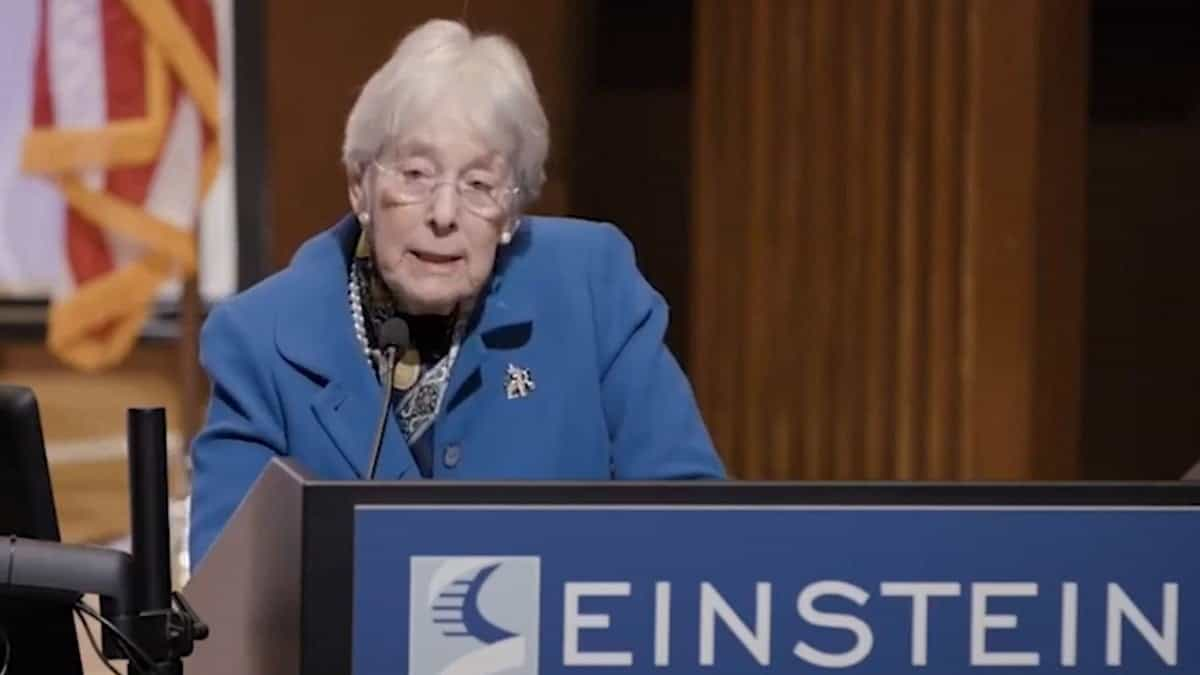Show table of content Hide table of content
In a world where financial burdens often crush students’ dreams, a remarkable act of generosity has forever changed the trajectory of medical education at one New York institution. Ruth Gottesman, a 93-year-old billionaire and former professor, has demonstrated how wealth can transform lives when directed toward meaningful causes.
The transformative billion-dollar gift that changed everything
When Ruth Gottesman announced her unprecedented $1 billion donation to Albert Einstein College of Medicine in the Bronx, students erupted in jubilation. This extraordinary gift eliminates tuition costs for all current and future medical students at this institution located in one of New York’s most economically challenged neighborhoods.
“Starting this August, Albert Einstein College of Medicine will be tuition-free,” Gottesman declared to thunderous applause. For students previously facing annual tuition bills of nearly $60,000, this announcement represented immediate financial liberation and a radical reimagining of their future careers.
Life This TikToker buys a used van and realizes it has a hidden surveillance device.
The donation stands as the largest ever made to any American medical school, creating ripple effects across higher education. While some wealthy individuals spend millions on personal luxuries that sometimes end in disappointment, Gottesman’s choice demonstrates the profound impact of directing wealth toward educational accessibility.
Medical students nationwide carry some of the heaviest educational debt burdens, often graduating with loans exceeding $200,000. This financial pressure frequently influences their specialty choices and practice locations, pushing many away from lower-paying fields like family medicine or from serving in underresourced communities.
Behind the billionaire’s remarkable journey
Ruth Gottesman’s path to becoming a benefactor of this magnitude began decades earlier within the same institution she now supports. As a professor at Albert Einstein College of Medicine, she dedicated her career to medical education and research before becoming widow to financial investor David Gottesman, whose significant wealth she inherited.
Unlike cases where inheritance leads to exploitation or misuse of family resources, Gottesman exemplifies thoughtful stewardship of wealth. Her connection to the institution runs deep, reflecting an intimate understanding of both the challenges facing medical students and the potential societal benefits of supporting them.
Life Say goodbye to flat and deep plates, here’s the new dinnerware trend for 2025.
Gottesman’s decision exhibits several qualities common among individuals who make meaningful contributions without seeking external validation. Her timing – making this transformative gift at age 93 – also speaks to her commitment to creating lasting impact rather than personal recognition.
The Montefiore Health System, which includes the Albert Einstein College of Medicine, celebrated this “transformational gift” that ensures “no student has to pay tuition again.” Administrators note that this donation will particularly benefit students from disadvantaged backgrounds who might otherwise never consider medical school due to financial barriers.
American education’s financial crisis and its wider implications
The burden of educational costs in America extends far beyond medical schools. According to specialized exchange program data, American students regularly face tuition ranging from $15,000 annually at less expensive institutions to over $100,000 per year at prestigious universities.
This financial pressure has created a crisis where approximately 70% of American students take on debt to finance their education. The Federal Reserve reported that in 2022, the average student loan burden had reached approximately $35,500.
Higher degrees typically translate to higher debt. The pressure to repay these substantial loans forces many students to adopt extreme productivity strategies and side hustles rather than focusing fully on their studies or choosing career paths based on passion or societal need.
The contrast between American educational financing and systems in other developed nations has sparked increasing debate about sustainability and equity. Research suggests that excessive student debt negatively impacts mental health, delays major life milestones like homeownership, and even affects physical wellbeing. Some studies indicate that significant financial stress may even offset some of the health benefits typically associated with higher education.
Creating a new model for medical education
Beyond its immediate impact on current students, Gottesman’s gift potentially represents a new paradigm for medical education funding. Several major medical schools have recently launched initiatives to reduce student costs, but none match the comprehensive scope of making education completely tuition-free in perpetuity.
Medical experts note that graduates unburdened by debt gain freedom to choose specialties based on passion and societal need rather than earning potential. This could address critical physician shortages in primary care, pediatrics, and psychiatry – specialties that traditionally pay less but fulfill essential healthcare needs.
Life Everyone had this toy in the ’90s, and it now sells for over $3,000.
The location of this gift in the Bronx carries additional significance. This borough faces greater health disparities and physician shortages than wealthier Manhattan neighborhoods just miles away. By supporting students at this specific institution, Gottesman potentially improves healthcare access for an underserved community.
The ripple effects extend to the social dynamics of medicine itself. Students from diverse socioeconomic backgrounds can now access medical education without financial barriers, potentially creating a physician workforce that better reflects patient populations. This diversity matters, as research shows patients often experience better outcomes when treated by physicians who understand their cultural contexts and life experiences.
Those who know how to navigate complex social environments understand that genuine generosity creates powerful connections. Gottesman’s gift has united an entire medical community while inspiring wealthy individuals nationwide to consider how their resources might similarly transform lives through education.


